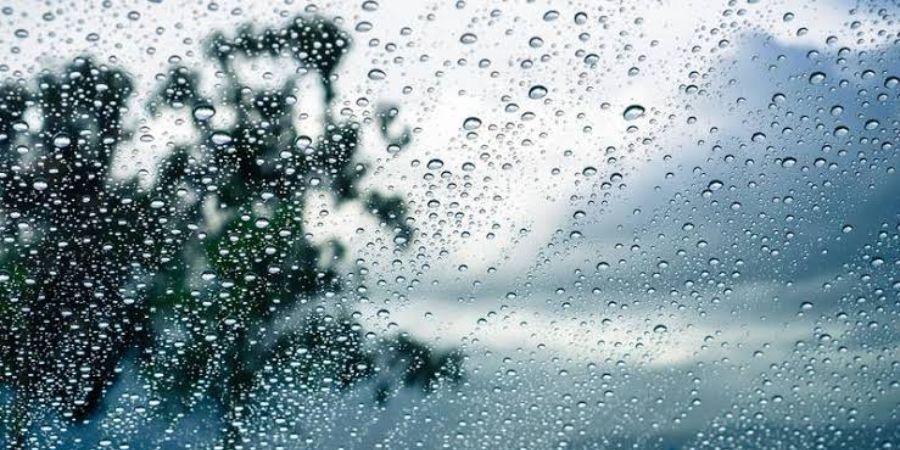

Well, it's November now, so you know what that means. Rain! Not only is it a great feeling to sit by the window, in comfortable pajamas with a cup of coffee, watching the dark clouds together. Rain is one of nature's most beautiful moments. He can make many people accept it as a blessing from God given by him to man at a particular time.
There are just specific things we all love to do when it's raining, like just staring out the window, thinking deeply about life while listening to the sound of the rain. Sit by the window drinking a cup of tea or coffee.
Playing in the rain is one of the most wonderful and refreshing things to do. It's like taking a shower outside, the rain is pouring down from above. Go out and have corn on the cob, have raw mango with a wonderful sauce on top. It's one of life's greatest moments that we should all take a moment and cherish.
Play Antakshari on a long car ride or eat street food with friends when it rains. Be with the people you love and adore. Laugh, joke, dance in the rain, capture your day and capture the perfect moments of joy and laughter.
Rain can be considered one of the most romantic atmospheres. There are couples going on a date in the rain, walking in the park holding an umbrella, kissing their partner in the rain, having their first kiss in the rain. Those are the little moments you can love in the rain.
These are just a few of my favorite things to do during the monsoon season, let us know what you think about some of the things you'd like to do during this time. !Advantages and disadvantages of rain | Top 10 Pros and Cons of Rain
January 12, 2022 by Prasanna
Pros and Cons of Rain:
Water vapor, or microscopic water droplets, is always present in the atmosphere. Water vapor can be trapped in large quantities by warm air.
Air blows out as it heats up. It cools as the air rises. The water begins to condense and turn into a liquid. Clouds are characterized by large concentrations of liquid droplets that have coalesced together.
Mountains can cause the air to rise and condense liquid droplets in the air.
If the clouds are large enough, the water droplets collide and expand more. When the water droplets grow strong enough, they create rain and fall to the earth.
Students can also find more pros and cons articles about events, people, sports, technology, and more.
What is rain? Pros and cons of rain 2021
Rain is obtained when moisture from the ocean, freshwater, and geological features evaporate and condense in cold, high air, creating clouds in the sky. Rain falls from these fluffy clouds, rehydrating the ground and the air. Precipitation, also known as precipitation, is the result of condensation of water in the surrounding atmosphere. Hail, rain, snow and hail immediately fall to the ground when the air can no longer withstand the pressure of moisture.
Rain is an important component of the never-ending water cycle, in which rain falls to the ground, evaporates, is absorbed by clouds, and then re-falls to continue the cycle. Precipitation actually contributes to the Earth's atmospheric conditions, the seasonal variation, and the sustainability of all of Earth's flora and fauna.
Comparison table of advantages and disadvantages of rain
Advantages of rain
Rain has many effects affects the environment, including vegetation, humidifies the air, forms rivers and streams, fills the groundwater table, and generates negative ions which are extremely beneficial. The redistribution of fresh, clean water in the water cycle is by far the most important benefit of precipitation.
Sustaining Human Life:
The human body needs a constant source of fresh water to help sustain its existence, which is created by heavy rainfall. To break down solids, the human digestive system needs water. Sweat, urine and feces help to completely eliminate dangerous toxins from the human system.
Plants can't survive without rain:
Vegetation, trees, grasses and flowering shrubs all need water to survive and thrive. From see4f gcbbsds to the mature growth stage, plant roots absorb moisture and transfer it to stem and leaves, promoting nutrition.
As a direct result of photosynthesis, plants absorb carbon dioxide from the atmosphere, providing the oxygen needed for animal respiration.
Rain is an important resource for all components of the environment:
Plants obtain the water needed to convert solar energy into food from rain-soaked soil, and animals absorbs water from this watered vegetation as well as from static and active water. Rain cools an already scorched atmosphere, rehydrating and replenishing parched leaves and grasslands. It retains rivers, waterways and swamps, which in turn help provide fresh water for fish and amphibians.
Spontaneous fresh water storage:
Rainwater falls on the surface and infiltrates the topsoil, eventually reaching aquifers in the rock bed. Groundwater in aquifers maintains high water concentrations. Many man-made wells are used to obtain drinking and bathing water by drawing directly from the groundwater table. Water from the aquifer seeps through sedimentary rocks in other areas, giving plants and trees stability .


